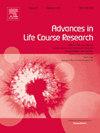Women’s pathways to motherhood in India: The intersecting roles of partnership and educational trajectories
IF 3.4
2区 社会学
Q1 Medicine
引用次数: 0
Abstract
Motherhood holds great importance in women’s transition to adulthood in India, where childlessness is often perceived as an inability to conceive and experienced as a failure. However, with globalization and declining fertility rates, family dynamics are shifting, and childlessness appears as an evolving reality beyond biomedical challenges related to procreation. This research aims to investigate whether there are indications of an emerging category of women forgoing motherhood for reasons beyond a lack of reproductive agency. Additionally, it explores whether this group differs in educational and partnership trajectories from typical patterns of transition to adulthood associated with childlessness in India. We use sequence history analysis on data from the National Family Health Survey (2019–2021). Findings indicate social stratification in childlessness, intertwined with broader disparities in family and educational trajectories. While family-oriented paths, particularly those involving marriage, remain most conducive to motherhood, highly educated women are more likely to delay childbearing. Moreover, results reveal a U-shaped relationship between education and hazard of first-time motherhood within conventional partnership trajectories. Education fosters reproductive agency, but also introduces competing aspirations that may limit family’s place in women’s lives. This study makes an original contribution to the limited quantitative literature that explores childlessness in India as a polarized phenomenon and highlights the innovative use of sequence history analysis in life course studies. Overall, by exploring childlessness, this research indicates broader reproductive inequalities as well as differences in life trajectories and aspirations, thereby calling for more inclusive reproductive health and social policies to address these disparities.
印度妇女成为母亲的途径:伙伴关系和教育轨迹的交叉作用
在印度,母性在女性向成年的过渡中具有重要意义,在印度,无子女通常被视为无法怀孕,并被视为失败。然而,随着全球化和生育率的下降,家庭动态正在发生变化,无子女似乎是一种不断演变的现实,超出了与生育有关的生物医学挑战。这项研究的目的是调查是否有迹象表明,除了缺乏生殖能力之外,还有一种新出现的妇女放弃做母亲的原因。此外,它还探讨了这一群体在教育和伴侣关系轨迹上是否与印度无子女的典型过渡模式不同。我们对2019-2021年全国家庭健康调查的数据进行了序列历史分析。研究结果表明,无子女的社会分层,与家庭和教育轨迹的更大差距交织在一起。虽然以家庭为导向的道路,特别是涉及婚姻的道路,仍然最有利于成为母亲,但受过高等教育的妇女更有可能推迟生育。此外,研究结果显示,在传统的伙伴关系轨迹中,教育程度与首次生育风险之间呈u型关系。教育促进了生育能力,但也引入了相互竞争的愿望,这可能会限制家庭在妇女生活中的地位。本研究对有限的定量文献做出了原创贡献,这些文献将印度的无子女现象视为一种两极分化现象,并突出了序列历史分析在生命历程研究中的创新应用。总的来说,通过探讨无子女问题,这项研究表明了更广泛的生殖不平等以及生活轨迹和愿望方面的差异,因此呼吁采取更具包容性的生殖健康和社会政策来解决这些差异。
本文章由计算机程序翻译,如有差异,请以英文原文为准。
求助全文
约1分钟内获得全文
求助全文
来源期刊

Advances in Life Course Research
SOCIAL SCIENCES, INTERDISCIPLINARY-
CiteScore
6.10
自引率
2.90%
发文量
41
期刊介绍:
Advances in Life Course Research publishes articles dealing with various aspects of the human life course. Seeing life course research as an essentially interdisciplinary field of study, it invites and welcomes contributions from anthropology, biosocial science, demography, epidemiology and statistics, gerontology, economics, management and organisation science, policy studies, psychology, research methodology and sociology. Original empirical analyses, theoretical contributions, methodological studies and reviews accessible to a broad set of readers are welcome.
 求助内容:
求助内容: 应助结果提醒方式:
应助结果提醒方式:


